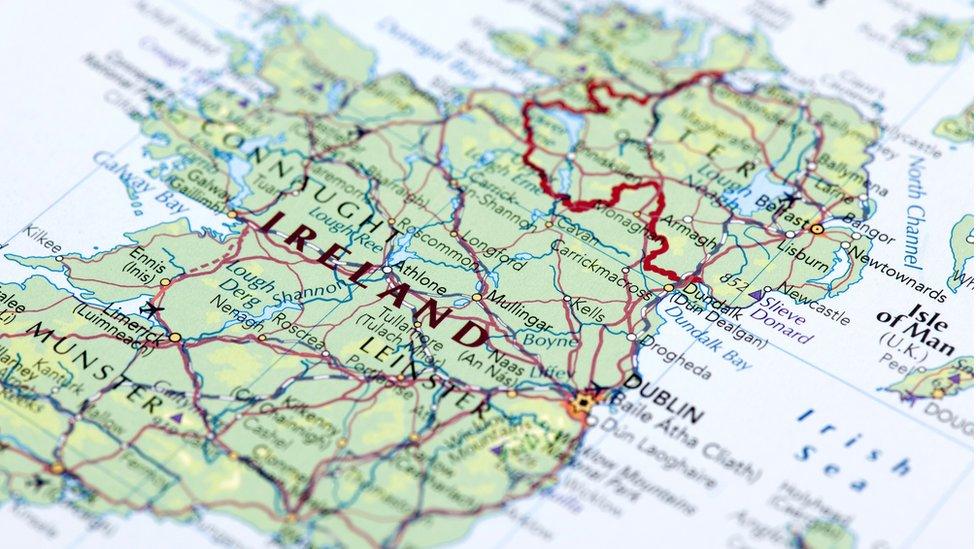Brexit: Experts divided over Irish border plan
- Published
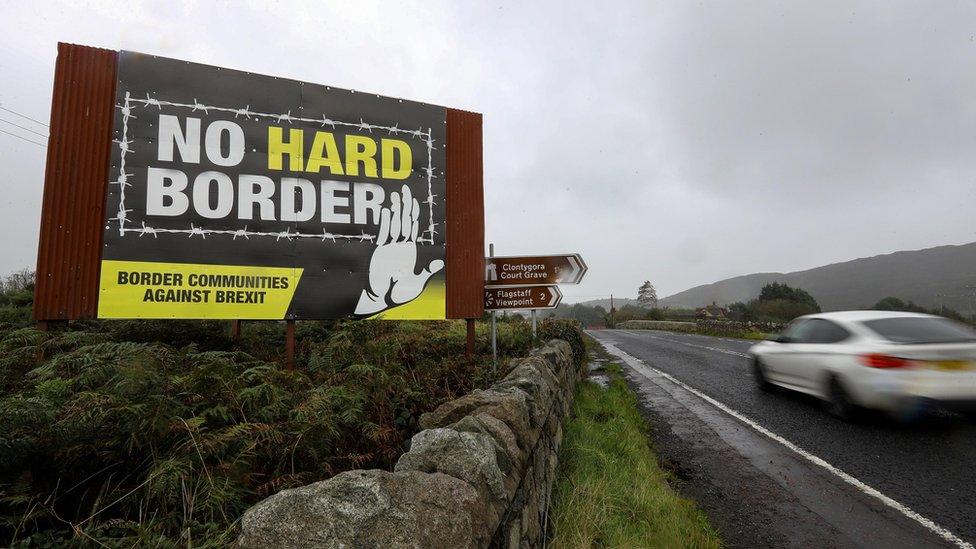
Trade and customs experts have given MPs sharply differing opinions on the government's Brexit plan for the Irish border.
The plan would involve a new customs border, albeit one where checks and controls happen away from the border.
Shanker Singham, who has advised pro-Brexit groups, said that the government had found an "elegant solution".
Sam Lowe, from the pro-EU Centre for European Reform, said the plan was not appropriate for a post-conflict region.
The experts were addressing MPs sitting on Westminster's Home Affairs Committee on Tuesday.
Under the UK plan, which Prime Minister Boris Johnson calls a "broad landing zone" for a new deal, Northern Ireland would leave the EU's customs union alongside the rest of the UK at the start of 2021.
But Northern Ireland would continue to apply EU rules relating to agricultural and other manufactured products if the Northern Ireland Assembly approves.
'Two half borders'
That arrangement could in theory continue indefinitely but the consent of Northern Ireland's politicians would have to be sought every four years.
Customs checks on goods traded between Northern Ireland and the Republic of Ireland would be "decentralised", with paperwork submitted electronically and only a "very small number" of physical checks.

Those checks should take place away from the border itself, at business premises or "other designated locations".
Mr Singham said that would create "two half borders", with the most intrusive regulatory checks dealt with in Irish Sea ports.
He also supported the government's plan for widespread use of trusted traders schemes and customs exemptions for the smallest businesses.
He said that if there were to be a deal the Irish government would have to move from its view that there could be no new checks or controls anywhere on the island of Ireland.
"There is no way of achieving that unless Northern Ireland stays in the single market and customs union," he said.
"Unless people come off that view it's very hard to see how any deal could work."
'Random stops and checks'
Mr Lowe said he "admires the honesty" of the government finally admitting that Northern Ireland would have to continue to align with some EU rules to prevent a harder border.
But on customs he said that "the goalposts are moved" from what the EU and UK agreed in the 2017 Joint Report, which was a sort of interim deal.
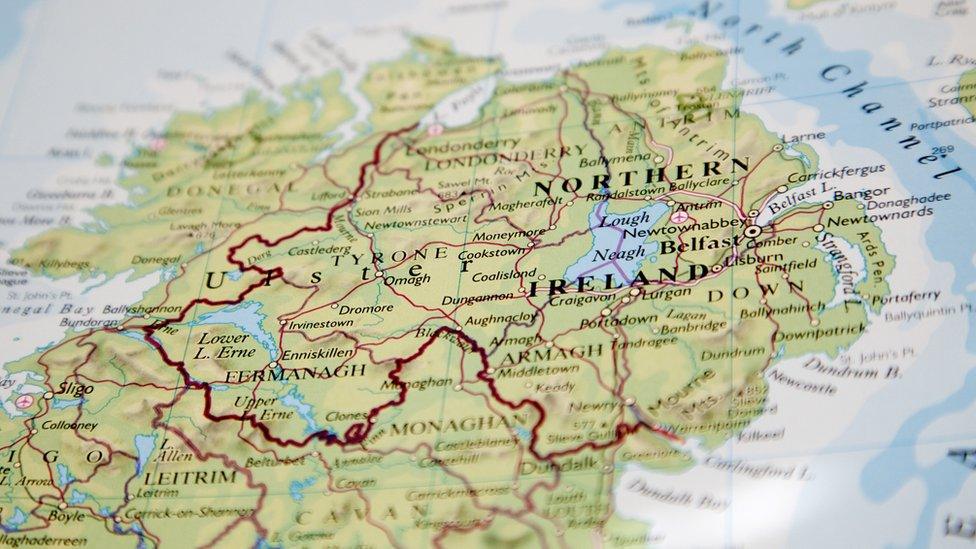
Under the government's plan checks would happen away from the border
He said the UK customs plan would involve infrastructure and new systems.
"How do you ensure people who don't recognise the legitimacy of the new system will comply with it... how much does the British government want to stress test the region?" he asked.
He also suggested the government plan would have to involve random stopping and checking of some vehicles.
Customs expert Dr Anna Jerzewska said much of the commentary about the government's plan appeared to underestimate the complexity of correctly preparing customs declarations.
The plan would involve submitting documents electronically but she said the point was not how customs documents are submitted but rather the information they must contain.
She said it takes "time and specialised knowledge" and there was a lack of trained customs professionals in the UK.
- Published2 October 2019
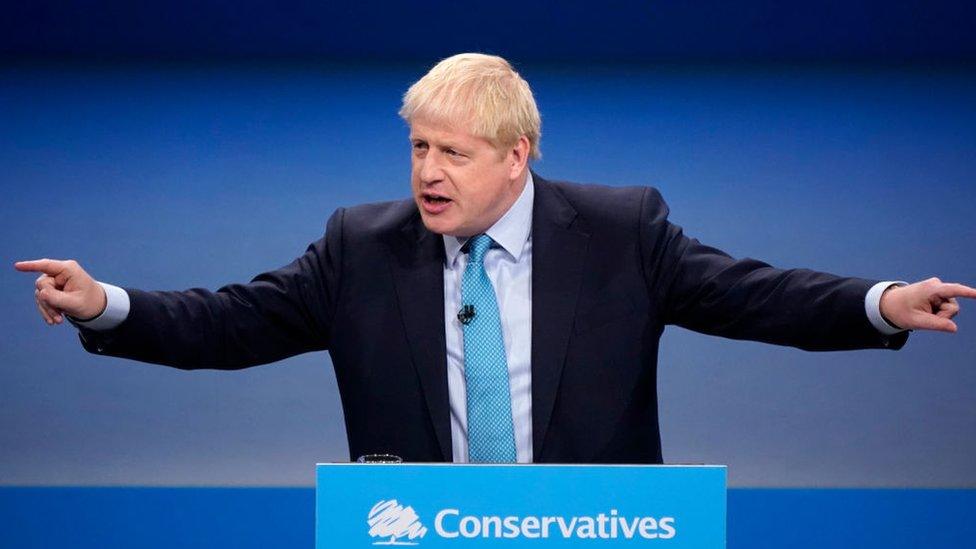
- Published2 October 2019
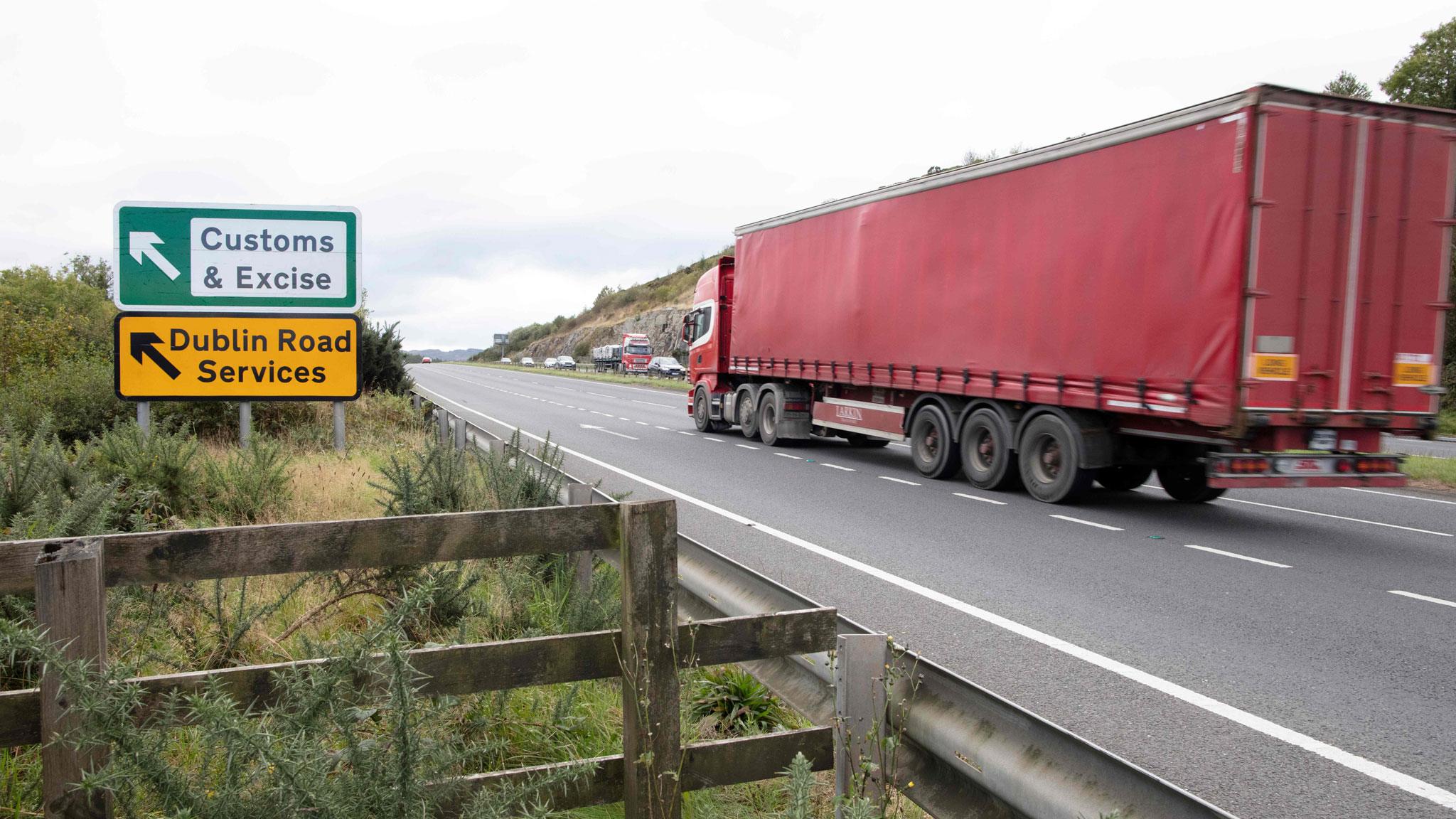
- Published2 October 2019
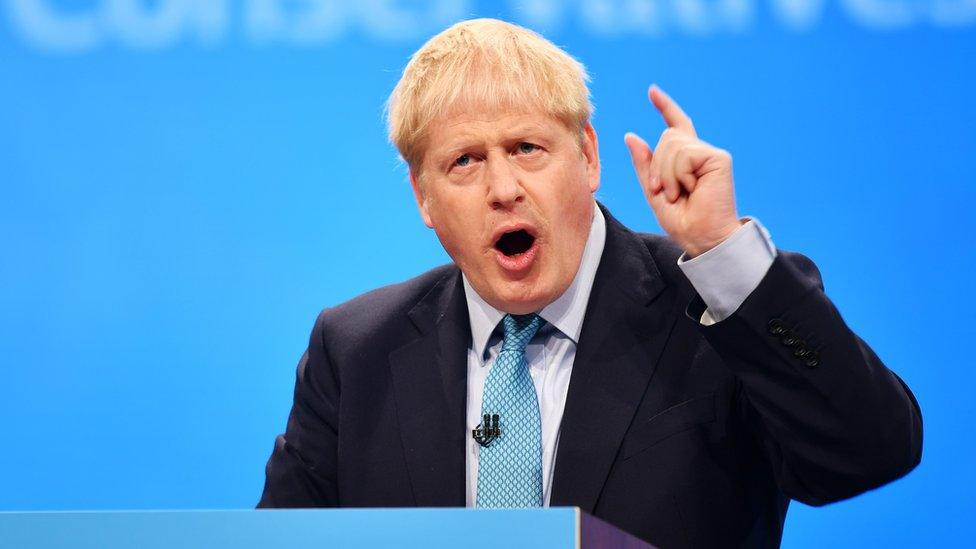
- Published4 October 2019
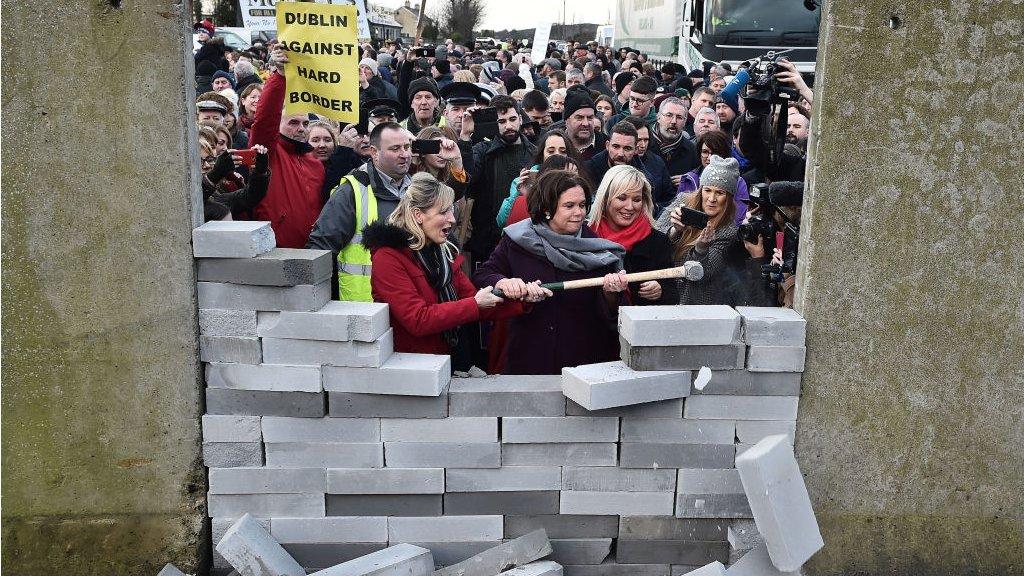
- Published13 December 2018
